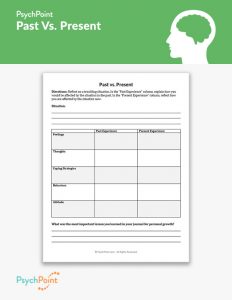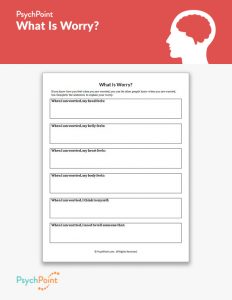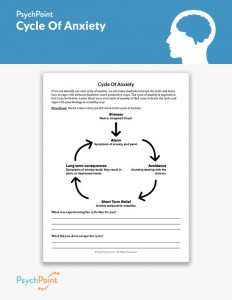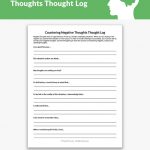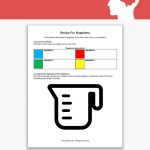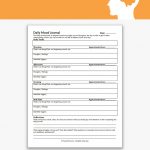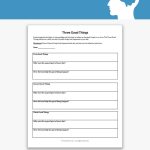Thinking Errors Worksheet
Worksheet updated on June 6th, 2025
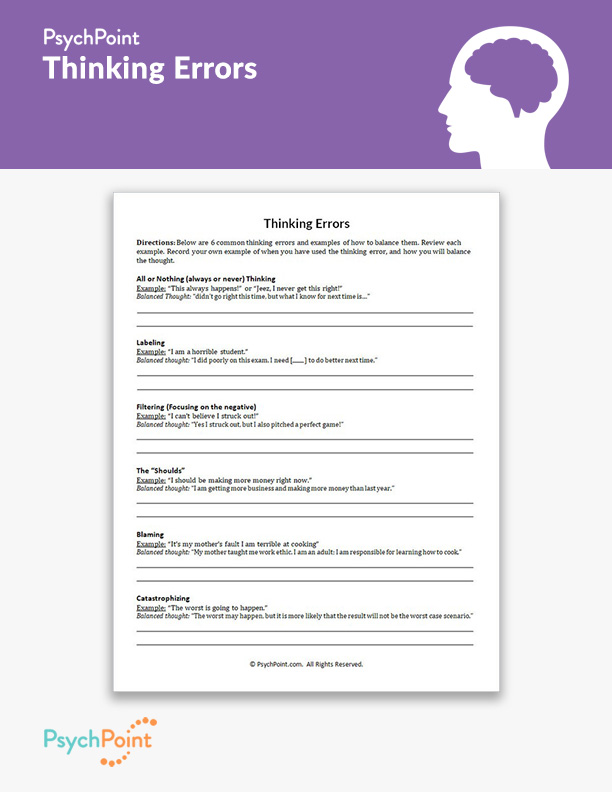
When teaching your clients cognitive behavioral therapy (CBT) coping skills, it is important to introduce them to common thinking errors. Thinking errors, or cognitive distortions, are thought patterns that can affect how clients interpret situations, contributing to hurt feelings, unwanted behaviors, an impaired sense of self-esteem, and more.
Thinking errors are a common experience. Identifying common thinking errors and balancing negative thoughts can help reduce negative thought patterns and improve reactions to triggering situations.
About This Worksheet
Thinking errors can affect a client’s judgment if not properly addressed in therapy. Learning about which thinking errors your client experiences most often can aid in learning healthy CBT coping skills, like thought-challenging, gentle self-talk, and more.
The Thinking Errors worksheet helps clients understand how thinking errors affect how they understand upsetting situations. It provides an example of 6 common thinking errors and how they can be reframed into a healthier and balanced thought. A space is also provided for the client to record their own example and balanced thoughts.
Adults participating in CBT can benefit from the Thinking Errors worksheet. It can be used in individual or group counseling sessions.
Instructions
Begin by briefly explaining what a thinking error is and how it can affect a client’s judgment. Then, introduce the worksheet and review each of the 6 types of thinking errors with your client. Instruct the client to provide an example from their own experience and help them formulate a balanced thought after reviewing each thinking error.
After reviewing each thinking error and allowing the client time to complete the worksheet with their own examples and balanced thoughts, ask them which 2 thinking errors they experience most often. Encourage them to reflect on how balancing thinking errors can alleviate hurt feelings and unwanted reactions. Provide the client with a copy of the worksheet for reference.
References
Beck, J. S. (2020). Cognitive Behavior Therapy, Third Edition: Basics and Beyond. New York, NY, USA: Guilford Press.
Friedman, H. H. (2023). Overcoming cognitive distortions: How to recognize and challenge the thinking traps that make you miserable. ResearchGate.

